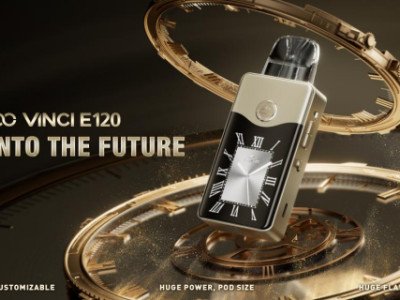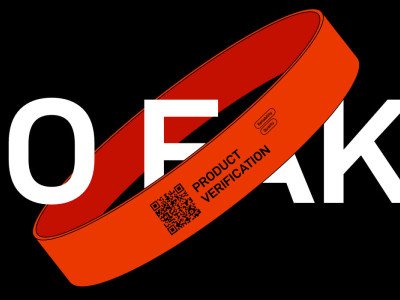Malone has managed to propel herself into a first-class seat on the tobacco control gravy train, becoming part of the international team that corrupted the WHO report on Tobacco Industry Interference with Tobacco Control, influencing the WHO Framework Convention on Tobacco Control.
Her anti-tobacco harm reduction stance has seen her engage on social media with vape advocates in a fashion similar to that exhibited by Simon Chapman: confrontational, patronising, and abusive.
At the end of July, she wrote: “Fascinating that ALL vape fans who say they hate smoking and have got off cigarettes adamantly oppose phasing out cigarette sales. Can every last one of them be an antivax-type libertarian who doesn't believe in seat belts? Not even 1 or 2 who think phaseout might make PH sense?”
You either support her idea of unworkable prohibitions or you are “an antivax-type…who doesn't believe in seat belts”. Maybe she’s missed the decade of statements that liken vaping to things like needle exchange programs, seat belts, and parachutes? Unlikely, it simply doesn’t fit her narrative to paint all vapers and advocates as frothing-at-the-mouth extremists.

Together with the University of California San Francisco’s Elizabeth Smith, she writes: “The successes of tobacco control in some countries and locales have led to discussions of ending the tobacco epidemic, often called the ‘endgame’. In this paper, we recommend articulating the endgame goal as phasing out sales of cigarettes, a goal once called ‘unthinkable’.”
Then she returned to Twitter to exclaim: “Actually prohibition does work and we do it for all kinds of far less harmful things than cigarettes, like heroin. If our smoking rates were the equivalent of heroin use rates we would be doing very well in public health terms.”
Prohibition does work? For heroin? Not according to the US National Institute [NIH] on Drug Abuse Heroin Research Report in 2018:
- 948,000 Americans using heroin annually
- Constant rise is users since 2007
- A trend is driven by young adult users
- First-time users double in the ten years after 2006
- The numbers recorded as developing a heroin-related mental disorder shot up from 214,000 in 2002 to 626,000 in 2016
The report states heroin “has been identified as the most or one of the most important drug use issues” and goes on to add: “Heroin use no longer predominates solely in urban areas. Several suburban and rural communities near Chicago and St. Louis report increasing amounts of heroin seized by officials as well as increasing numbers of overdose deaths due to heroin use. Heroin use is also on the rise in many urban areas among young adults aged 18-25. Individuals in this age group seeking treatment for heroin use increased from 11 percent of total admissions in 2008 to 26 percent in the first half of 2012.”
Barmy Malone claims, “prohibition does work” for heroin use yet it has demonstrably failed. The 2020 NIH report on the Opioid Overdose Crisis states: “every day, 128 people in the United States die after overdosing on opioids.”
Alcohol prohibition failed, the war on drugs continues to fail, and tobacco prohibition failed in South Africa. Advocate and expert Clive Bates picks up the baton: “So ‘prohibition does work’ says Ruth Malone. Really? Where to start?
“Firstly, the comparison with heroin is truly absurd. Heroin is highly disruptive or intrusive for many (not all) users and demand is low. Unlike alcohol or many illicit drugs, nicotine does not lead to overdose, intoxication, violence, accidents, job loss, or family breakdown.
 “The opioid experience in the US is a disaster. Heroin is not a success story: ‘Opioids were involved in approximately 70% (46,802) of drug overdose deaths during 2018’. These are younger than smoking-related deaths - a high toll in lost life-years.
“The opioid experience in the US is a disaster. Heroin is not a success story: ‘Opioids were involved in approximately 70% (46,802) of drug overdose deaths during 2018’. These are younger than smoking-related deaths - a high toll in lost life-years.
“Prohibition does not stop illicit drug use: past-month illicit drug use prevalence = 24.0% 12th grade Americans (MTF, 2018 data). Nearly the same as report 'any vaping' 26.7%, which will include illicit THC vaping.
“Prohibiting cigarettes is about the worst idea yet from tobacco control - and follows the failure of every measure in its 'tobacco endgame' proposals of 2013 [BMJ - link] [Bates, Endgame proposals - link].
“The relatively mild and innocuous drug nicotine will (and should) remain legal. The question is how it is provided in a consumer-acceptable and relatively safe form - within normal risk appetites - over the long term.
“Phasing out cigarettes by *brute force* rather than by creative destruction through consumer demand for alternatives will fail. Cigarettes could be marginalised in 10-15 years - but only if everyone gets behind the alternatives and the propaganda stops.
“The 2019 lung injury outbreak (‘EVALI’) was *caused by prohibition*. THC vapes are sold through an illicit unregulated criminal supply chain. Vitamin E acetate, a cutting agent, was unscrupulously added to boost profits and caused serious harm to users.
“After all the BLM outpourings from tobacco control activists, one might expect a flicker of self-awareness about how prohibitions play out. But anyone calling prohibition a success should catch up on the Netflix Narcos series. Or for a less entertaining but more rigorous treatment, read this from my good friends at Transform Drugs - Counting the Cost of the Drugs War: The Alternative World Drug Report 2nd Edition (2016) [link].
“Even Bhutan, the paradise of tobacco prohibitionists, is a dismal failure in the reality-based world. Tobacco use is ~24% and, according to a 2020 WHO report, there is a thriving black market run by enterprising youth.
“Remiss of me not to mention the ongoing tobacco prohibition experiment in South Africa. Actually, a mafia take-over. Surely tobacco prohibitionists like Ruth Malone will study this? Perhaps by reading this assessment by independent fiscal analysts: The South African REEP group has done a second report on the South African COVID lockdown and tobacco prohibition [link] argues that tax increases would have been better and now the illicit market is established, tax increases may be impossible.”
Malone failed to respond to a single point Clive Bates made but took time to make sarcastic comments to other Twitter users. She is too financially committed to continuing her bigoted and batty war, whipping up as much fear in the process, to bother to take on board logical arguments – yet we are the antivax seatbelt haters.
Related:
- Ruth Malone – [link]
- “An argument for phasing out sales of cigarettes”, Smith and Malone, BMJ – [link]
- Heroin Research Report, NIH, 2018 – [link]
- Opioid Overdose Crisis, NIH, 2020 – [link]
- Drug and Opioid-Involved Overdose Deaths, CDC – [link]
- The Endgame Revisited, Clive Bates – [link]
- “Counting the Cost of the Drugs War: The Alternative World Drug Report 2nd Edition (2016)”, Transform Drugs – [link]
- Factsheet 2018 Bhutan – [link]
Photo Credit:
- Flapper image by 6563351 from Pixabay
- Image by Clker-Free-Vector-Images from Pixabay
- Gangsters image by jakobtholm from Pixabay
- Art Deco image by Prawny from Pixabay
- Art Deco image by Annalise Batista from Pixabay
Dave Cross
Journalist at POTVDave is a freelance writer; with articles on music, motorbikes, football, pop-science, vaping and tobacco harm reduction in Sounds, Melody Maker, UBG, AWoL, Bike, When Saturday Comes, Vape News Magazine, and syndicated across the Johnston Press group. He was published in an anthology of “Greatest Football Writing”, but still believes this was a mistake. Dave contributes sketches to comedy shows and used to co-host a radio sketch show. He’s worked with numerous start-ups to develop content for their websites.
Join the discussion
Harm Reduction For The Rich
The United Kingdom risks becoming a harm reduction country only for the wealthy, according to Michael Landl of the World Vapers’ Alliance
CAPHRA Highlights Tobacco Control Flaws
The Coalition of Asia Pacific Tobacco Harm Reduction Advocates highlights the flaws in tobacco control which has led to the rise of black market in Australia
A Missed Opportunity at COP10
The Smoke Free Sweden movement says that COP10 was a missed opportunity to save millions of lives
COP10: Promote Tobacco Harm Reduction
Experts with Smoke Free Sweden are emphasising the urgent need for a Tobacco Harm Reduction approach at COP10








-listing400.jpg)


